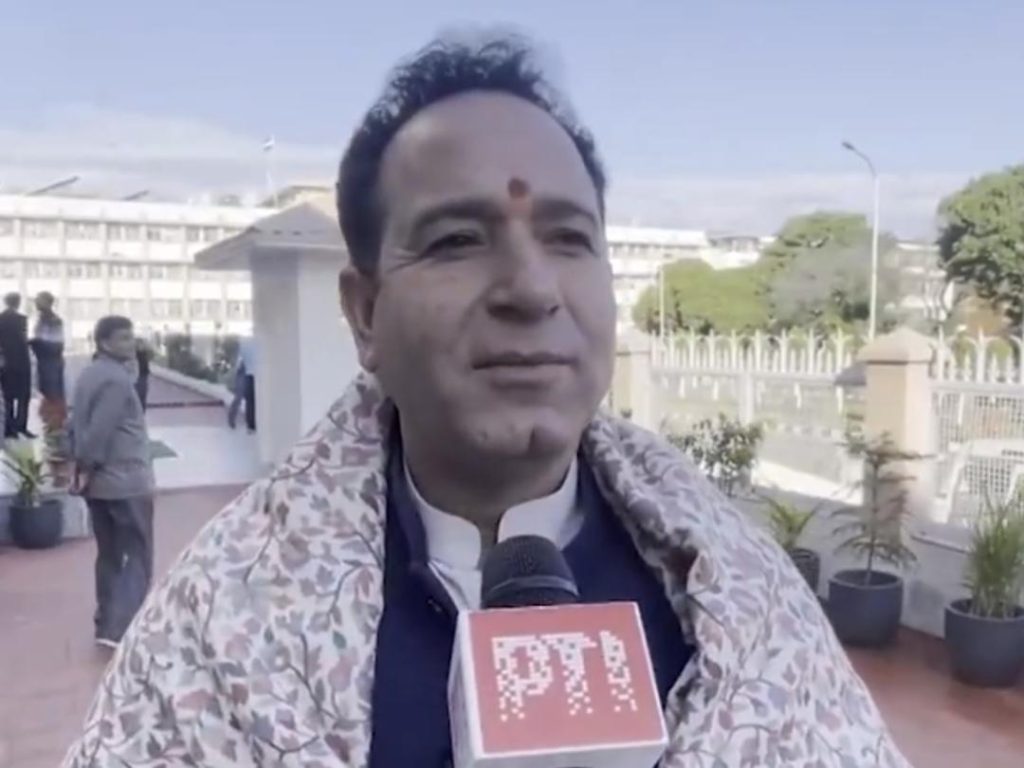
Irrelevant to Discuss Article 370 in J&K Assembly Session: BJP
The Jammu and Kashmir Assembly session has been underway, with the ruling government and opposition parties engaging in heated discussions on various issues. However, the Bharatiya Janata Party (BJP) has taken a clear stance on one topic that has been a point of contention for years – Article 370. According to Sunil Sharma, the BJP MLA and Leader of Opposition in the Jammu and Kashmir Assembly, it is “irrelevant now” to discuss Article 370 in the assembly.
During the recent assembly address by Lieutenant Governor Manoj Sinha, Sharma expressed his disappointment that the speech did not reflect the promises made by the current state government. In a statement, Sharma said, “It would be a waste of time if we will have the discussion on Article 370 (in the Assembly).” His comments have sparked a lot of debate and discussion, with many questioning the relevance of Article 370 in the current political scenario of Jammu and Kashmir.
For those who may not be aware, Article 370 was a constitutional provision that granted special status to Jammu and Kashmir, making it a unique case in the Indian Constitution. The provision was introduced in 1954, shortly after the state’s accession to India. It granted the state a significant degree of autonomy, including the right to make its own laws, except in matters of defense, foreign affairs, and communications.
However, in 2019, the Indian government, led by Prime Minister Narendra Modi, announced the decision to revoke Article 370, which led to the bifurcation of the state into two union territories – Jammu and Kashmir, and Ladakh. This move was seen as a significant step towards integrating Jammu and Kashmir with the rest of the country.
Despite the revocation of Article 370, the debate around its relevance continues to rage on. Sharma’s statement reflects the BJP’s stance on the matter, which is that discussing Article 370 in the assembly would be a waste of time. This is because, according to the party, the provision has already been revoked, and its relevance has been diminished.
However, not everyone agrees with Sharma’s stance. Many opposition parties, including the National Conference and the Peoples Democratic Party (PDP), have been demanding a rollback of the revocation of Article 370. They argue that the provision was a vital component of the state’s identity and autonomy, and its removal has led to a loss of sovereignty and self-governance.
Moreover, many Kashmiri politicians and civil society groups have been protesting against the revocation of Article 370, citing concerns about the erosion of their rights and the impact it has had on their daily lives. They argue that the provision was not just a constitutional provision but also a symbol of their identity and a reminder of their unique cultural and historical heritage.
In the context of the current assembly session, Sharma’s statement has significant implications. The opposition parties, who have been demanding a rollback of the revocation of Article 370, are likely to use Sharma’s statement to further their demands. They may argue that the BJP is trying to suppress the issue and avoid a discussion on the matter, which would only lead to further polarization and unrest in the state.
On the other hand, the ruling BJP, which has been touting its decision to revoke Article 370 as a major achievement, is likely to use Sharma’s statement to assert its dominance and reiterate its commitment to integrating Jammu and Kashmir with the rest of the country.
In conclusion, the debate around Article 370 is likely to continue, with both sides presenting their arguments and counter-arguments. Sharma’s statement has added a new layer of complexity to the issue, and it remains to be seen how the opposition parties will respond to it. One thing is certain, however – the issue of Article 370 will not go away anytime soon, and it will continue to shape the political discourse in Jammu and Kashmir for years to come.



